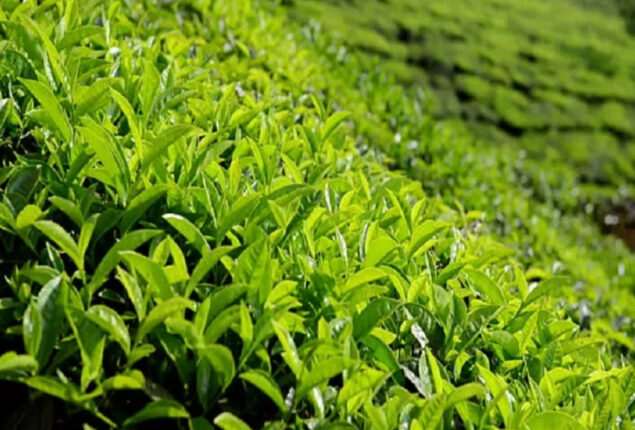Punjab Is Not Stealing Sindh’s Share Of Water: Irrigation Minister
The Irrigation Minister of Punjab Mohsin Leghari has said that Punjab is...

Tea is a big import that costs Pakistan a lot of money every year. Every year, around 250 million kgs of tea are imported, costing the exchequer nearly $600 million.
Dr Fayyaz Ahmed, Principal Scientific Officer at the National Tea and High-Value Crops Research Institute (NTHRI), Shinkiari, Mansehra, said, “Our institute is spread across 50 hectares, 35 of which are used for tea plantation and processing. This institute is conducting research on tea cultivation, and there are units available for processing both black and green tea.”
“But now is the time to increase our area of production, as we have more suitable lands for tea cultivation. For this purpose, we conducted a survey. According to the survey, Pakistan currently has approximately 158.000 acres of potential area for tea planting. If the forest area is included, tea can be produced on approximately 180,000 acres,’’ he said.
He further said, “As it needs a specific climate, we have locations like Mansehra, Batagram, and Malakand that are excellent for tea cultivation. Mansehra has an abundance of land that is ideal for growing tea and is available for cultivation. Additionally, there are more areas if you keep going on to Swat and beyond.”
“But the farmers are avoiding cultivating tea plants, as tea plantations are causing us a lot of issues, and the common farmers are struggling the most. We attempted to convince the local farmers to cultivate tea plants, but since there aren’t many farms in this region and the production process takes six to seven years, the farmers can’t wait that long and they step back to grow things that can pay back immediately.”
“However, if the farmers plant tea, after five years, they will get more benefits since tea plants will continue to produce for 100 years. So, we suggested that the government should intervene and plant tea trees on a large scale where forest land is suitable. Federal Minister for Planning, Development, and Special Initiatives Ahsan Iqbal during his visit to Shinkiari also stressed the need for local tea production to save the foreign exchange,’’ said the NTHRI scientist. “Tea cultivation requires a specific environment, including acidic soil, as it has its growth requirements. As a result, we are unable to plant tea in the Punjab due to the alkaline soil; instead, it is grown in hilly areas,” he added.
“For tea, a moderate temperature is preferred rather than a high one. The optimal range is 13 degrees to 30 or 35 degrees. Chinese tea varieties suit our environment so we import them from China,’’ said Dr Fayyaz. “The primary challenge we are facing is that we need to commercialize it for commercial scale production even though we have a few inputs and some study has already been done on how to produce or process it,’’ he added.
Catch all the Business News, Breaking News Event and Latest News Updates on The BOL News
Download The BOL News App to get the Daily News Update & Follow us on Google News.